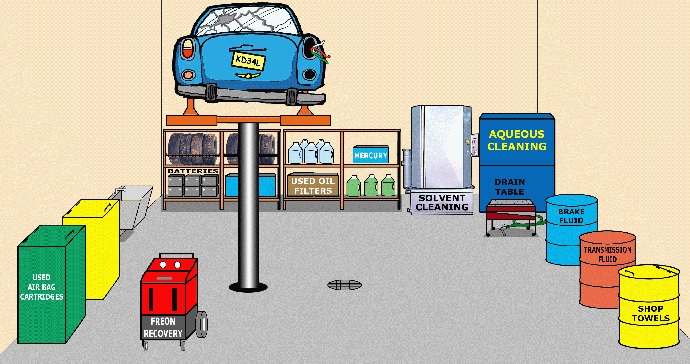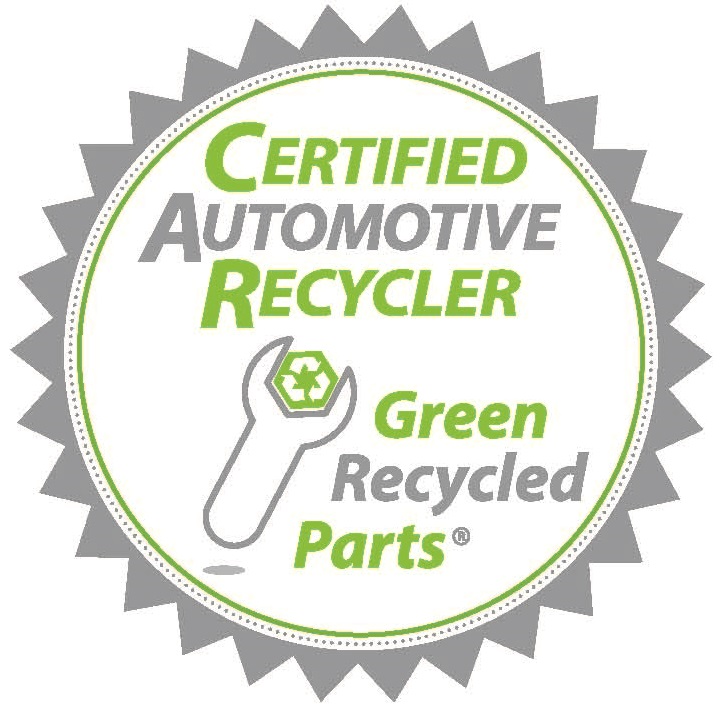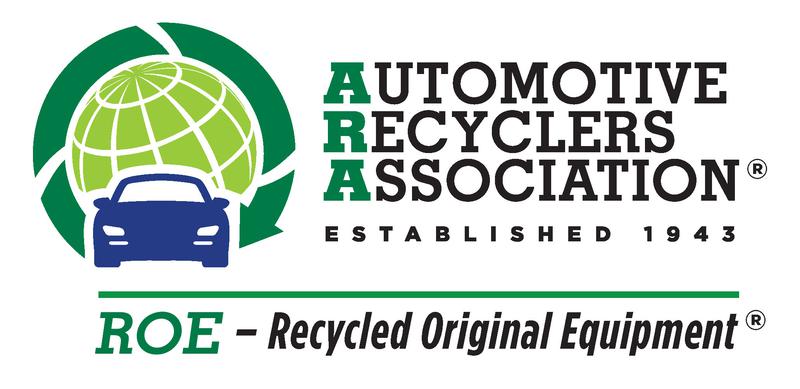Certified Auto Recyclers
Many professional automotive recyclers use a certification program to attain and maintain compliance with environmental, safety and transportation rules applicable to salvage facilities. The Automotive Recyclers Association (ARA) Certified Auto Recyclers (CAR) program sets a standard of excellence as the path to compliance.
The Wisconsin - Certified Auto Recycler (WI-CAR) program is the state program affiliate to the ARA CAR Program. WI-CAR standards meet the ARA CAR program standards and are specific about the Wisconsin regulations governing waste management, permitting and safety in the state.
Regulatory Agency
The Wisconsin Department of Natural Resources (DNR) monitors environmental quality, offers technical and financial assistance, and enforces environmental regulations. The agency finds and cleans up spills or leaks that can affect our health and environment. Staff develop statewide policy, and support environmental education.
The WI-DNR issues permits for air quality, land application and water discharge as well as regulates hazardous waste in the state. https://dnr.wisconsin.gov/
The Wisconsin DNR Central Office is located downtown, near the State Capitol, in Madison, Wisconsin. DNR Service Centers are located throughout the state of Wisconsin. The State of Wisconsin is broken down into five regional areas. To locate your regional office visit https://dnr.wisconsin.gov/contact/OfficeLocations.html.
The Environmental Protection Agency (EPA) Region 5 serves Illinois, Indiana, Michigan, Minnesota, Ohio, Wisconsin and 35 Tribes from headquarters in Chicago, IL. https://www.epa.gov/aboutepa/epa-region-5
US EPA Region 5
Ralph Metcalfe Federal Building
77 West Jackson Blvd.
Chicago, IL 60604
312-353-2000
EPA in Wisconsin https://www.epa.gov/wi
Stormwater Regulations
Pollutants carried in storm water runoff from industrial facilities threaten or degrade water quality in many areas of the state. Because of this problem, state and federal laws require that certain dischargers of industrial storm water have a storm water discharge permit. The purpose of the permit is to identify conditions under which industrial storm water can be discharged so that the quality of surface waters, wetlands and groundwater is protected.
Spill Reporting
Call the 24-hour emergency hotline at 1-800-943-0003.
All spill incidents should be reported to WI DNR immediately using the 24-hour toll free hotline (1-800-943-0003).
National Response Center
If the hazardous condition involves the release of an EPA regulated material or an oil as defined by the EPA, the release may also need to be reported to the National Response Center at (800) 424-8802. Federal Reporting is required within 15 minutes of event occurrence or discovery.
The National Response Center (NRC) is a part of the federally established National Response System and staffed 24 hours a day by the U.S. Coast Guard. It is the designated federal point of contact for reporting all oil, chemical, radiological, biological and etiological discharges into the environment, anywhere in the United States and its territories.
Resources
The Wisconsin Small Business Environmental Assistance Program provides a comprehensive set of resources and tools to help a business determine its environmental responsibilities with complex federal and state regulations. The program strives to help small businesses take advantage of the opportunities of sustainable practices. Identifying, measuring and managing environmental impacts can bring tangible business value to companies of all sizes. https://dnr.wisconsin.gov/topic/SmallBusiness
National Small Business Environmental Assistance Program
The 1990 Clean Air Act Amendments required states to develop programs to help small businesses comply with air quality regulations through a small business environmental assistance providers' programs (SBEAP). Many state technical assistance programs have expanded their air quality focus to provide technical assistance in other environmental areas.
Services provided by these organizations for small businesses include multi-media environmental compliance and pollution prevention (P2). P2 services help businesses reduce emissions at the source, often reducing regulatory burden and sometimes saving money.
To access these free, often confidential services and see which ones your state offers, locate your state program at https://nationalsbeap.org/states
Pollution Prevention Resource Exchange (P2Rx™) http://www.p2rx.org/
P2Rx is a national partnership of regional pollution prevention information centers funded in part through grants from EPA. We build networks, deliver P2 information, and measure P2 program results.
The Great Lakes Regional Pollution Prevention Roundtable (GLRPPR) serves the Great Lakes region of the United States (Illinois, Indiana, Michigan, Minnesota, New York, Ohio, Pennsylvania, and Wisconsin) and Canada (Ontario).
GLRPPR projects include:
A series of guides developed for small business is available at the Portal to resources developed by the GLRPPR including the Pollution Prevention 101 and the Green Business Guide.
The following fact sheets are designed to assist automotive recyclers with operating their businesses and managing their wastes in compliance with the environmental laws in their state. Select from the list below.






